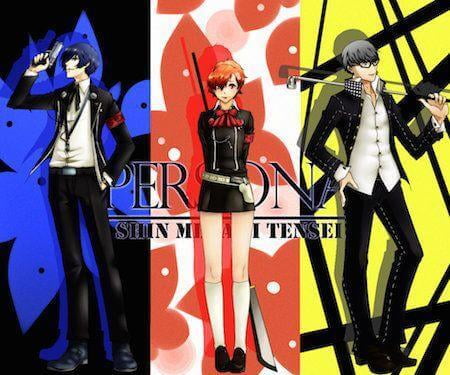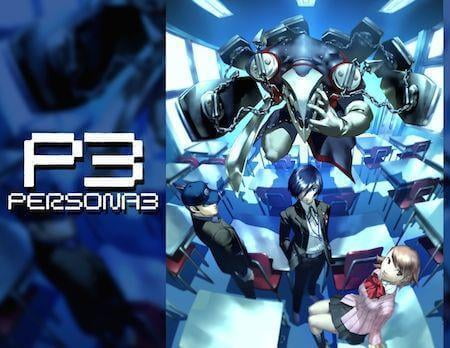5 Reasons: Shin Megami Tensei Persona Games Are so Damn Good
 One of the most pleasant surprises of the end of the PS2’s life cycle were Atlus’s Shin Megami Tensei Persona 3, Persona 3 FES, which was an add for Persona 3 (2007) and Shin Megami Tensei Persona 4 (2008), all released in North America long after the next generation of consoles had come out.
One of the most pleasant surprises of the end of the PS2’s life cycle were Atlus’s Shin Megami Tensei Persona 3, Persona 3 FES, which was an add for Persona 3 (2007) and Shin Megami Tensei Persona 4 (2008), all released in North America long after the next generation of consoles had come out.
The Battle System in these RPGs is party-based combat
In standard level-grinding dungeons, but the other half of the gameplay makes Persona games unique. Each game is split almost evenly in half between dungeon combat. . . And working through one year in the daily life of high school students in Japan (including occasionally answering questions in school).
The player directs the protagonist
To determine how to spend free time, by spending time with friends, potential girlfriends (all playable relationships are heterosexual and only Persona 3 Portable the PSP version offers a female protagonist), or local residents, eating or going out, or taking part in activities (studying, part-time jobs, etc.).
This portion of the game fits a genre, more popular in Japan than in North America, known as simulation games – games simulating various aspects of real life. In Persona video games, the sim-game portion strategically affects combat capabilities through the signature “Social Link” mechanic. By spending time with various local residents, you level up different arcana in the Tarot deck, which represent different suits of personas—avatars who help you fight in the dungeons.
The more time you invest in a social link
The more power you can call on from that arcana of personas. In Persona 4 video game, for example, you can level up the “Death” arcana by talking to an old woman on the riverbank preoccupied with the death of her husband, the “Hermit” arcana by helping a supernatural fox answer the prayers left at a Shinto shrine, and the “Priestess” arcana by developing a relationship with Yukiko, a classmate who fights alongside the protagonist as the game’s main healer.
Leveling up social bond allows the use of higher-level personas of the relevant arcana and, in Persona 4, helps the protagonists’ teammates learn combat skills (like taking a mortal blow for the main character, thus avoiding a game over) and achieve their personas’ evolved states.
The connections between social simulation and Role Play Game combat spark interesting choices.
It is possible to max out all social bonds in one play through, but unlikely for a player not rigorously following an online guide (I’ve always had a few links I didn’t have time to max out). A player interested in both must constantly decide whether to follow the most narratively interesting social links, the ones that will provide the greatest combat benefits according to one’s play style, or some combination.
These connections between narrative and gameplay
They are reinforced by “message” of the games, which stresses that strong social bonds are crucial to the protagonist being able to overcome godlike final enemies who represent the darker sides of human nature that can, the games suggest, be tempered by socialization.
being able to overcome godlike final enemies who represent the darker sides of human nature that can, the games suggest, be tempered by socialization.
The simulation game portions of Persona can also be compelling on their own merits.
Games often model some kind of human experience or activity—most commonly combat. Games that model social relationships are rarer, in part because it’s much harder to write programmable rules for how relationships work than it is for how swords and bullets work. Physics has clear rules – love and friendship are murkier.
The Persona Series developer Atlus is clearly interested in taking up this challenge
(not only with the Persona series, but also with the intricate and quietly successful 2011 relationship sim/block puzzle game Catherine). Atlus’s explorations of social models in games do some things very well. They reflect, often in detail, locations and situations from Japanese social life, making it an interesting cultural experience for non-Japanese players (and a model of real life for Japanese players). And they direct attention toward investing time in people and portray often interesting relationships.
Unsurprisingly, Persona’s social simulations are far from perfect
This is part of what makes them interesting. In the games’ romantic relationships, for example, you get in trouble if you have two different girls at the “girlfriend” stage simultaneously, and they find out, which seems realistic. Yet, once you max out your relationship with a girl, there are no consequences for starting a relationship with the next girl—and you never have to spend time with the first girl again to keep the relationship (and arcana power) maxed.
Once you achieve a “true bond,”
A maxed social link requires zero maintenance from that point on. As a result, the game encourages—almost demands—serial monogamy: it is a significant strategic handicap to not pursue relationships with multiple girls, because many of them are in your battle party, so leaving  their arcana at low levels makes battle much harder.
their arcana at low levels makes battle much harder.
This is a flaw in Atlus’s social relationships model
But one whose absurdity (I tended to have 4-5 maxed romantic relationships by the end of a play through – sometimes involving best friends who apparently never discuss their boyfriends) made me think about how relationships really work.
Persona 4 took steps toward making this model more complex
By including, for example, a potentially romantic relationship that will fail romantically (but still allow for a maxed out ‘friends’ social link) if you pursue a romantic and physical relationship too soon, while the girl is still getting over another guy she liked. This relationship’s unusual middle stage and forking-path endings diverge from the games’ otherwise straightforward model, where a relationship simply gets progressively more intimate unless you say something stupid in dialogue choices and set it back.
Persona 5 (which got released on the PlayStation 3 Console
Atlus makes games that make me think about things differently. The closest comparisons I can think of would be BioWare’s character-driven Role playing games in the Mass Effect Series and Dragon Age series and Telltale Games’s The Walking Dead episodic game, though in each case the mechanics of how character and relationship development are explored are quite different.
I would highly recommend fans of those games try out the Persona Series
(if you don’t mind some dungeon-crawling) for an intriguing mix of RPG and simulation gameplay that provides thought-provoking models of the social worlds of games and reality. Don't forget the original games Persona Revelations Series, and Persona 2 Eternal Punishment and Persona 4 Golden on the ps vita.

Comments